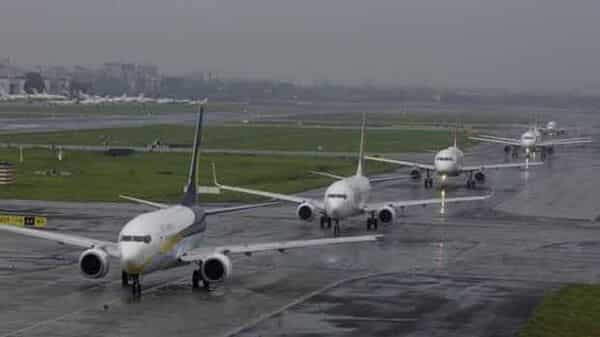[ad_1]
The civil aviation ministry is planning to closely monitor usage of bilateral traffic rights awarded to domestic airlines as it works to increase international connectivity from India, two people aware of the matter said.
“There was a discussion on bilaterals recently, where the focus was on bilateral traffic rights utilization. Here, let’s say an airline was given bilateral rights to fly to a country and it is not using it; so many a time, the airline would get an extension even without using it. So, there has been a thought process to review the usage more frequently,” said an airline executive, one of the two people cited above.
“The civil aviation ministry is also of the view that there needs to be a rationalization of bilaterals. There is a lot of potential out there on international routes and with new airlines coming up, there needs to be a more efficient mechanism of reviewing these rights,” said the second person, a government official.
ALSO READ: Singapore Airlines, Tatas in talks for possible merger of Vistara and Air India
Bilateral agreements are air service agreements between two countries which provide different degrees of freedom of air, which are a set of commercial aviation rights granting a country’s airlines the privilege to enter another country’s airspace.
As of August 2022, India has bilateral agreements with 116 countries, covering aspects relating to the number of flights, seats, landing points and permitted code share. When the government allots bilateral traffic rights to an airline, it grants a fixed number of seats or flights that an airline can operate. “Most of the bilateral Indian operators cannot utilize their full quota, which is one of the reasons there is an imbalance in bilaterals. Again, this is a precious resource and should not be allowed to lapse,” said Vishok Mansingh, CEO, Vman Aviation Services, adding that any move in the direction will make the mechanism more efficient and will allow utilization of the quota in case the original allottee cannot operate the allocated slot.
Over the years, the actual utilization of available rights on international sectors has been quite imbalanced. Utilization by foreign airlines has been higher than that by Indian airlines, and as a result, foreign airlines often derived a disproportionate economic advantage out of the traffic rights.
There has also been a disruption on account of the ban on scheduled international flights due to the covid pandemic. India resumed international travel from 27 March, 2022, but regular travel has still not fully recovered due to restrictions in several parts of the world including China, Malaysia, and some other countries in the Asia-Pacific. “As a result, traffic rights have not been reviewed since the summer of 2020,” another airline executive said. “Yes; the bilateral traffic rights mechanism has been disrupted since covid… only one schedule has happened since covid so far. Now, the winter schedule will start soon. We will review the rights as per protocol once the airlines file for summer schedule in January,” another government official said.
An airline with a valid air operator certificate with at least 20 aircraft can apply for bilateral rights for international flights.
Download The Mint News App to get Daily Market Updates.
[ad_2]
Source link

